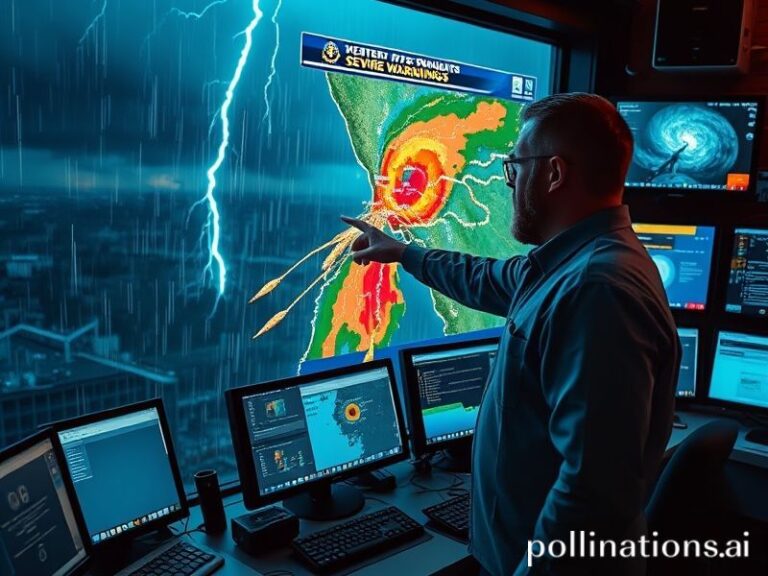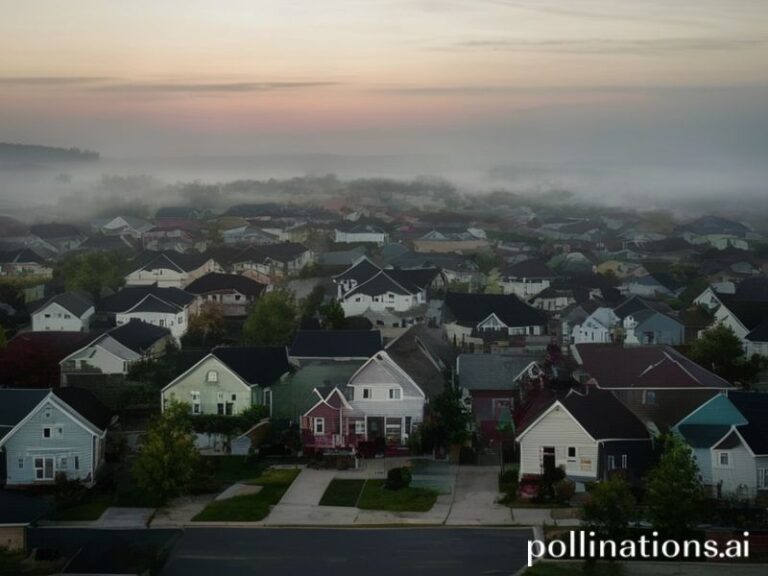WMUR News: How a New Hampshire Station Became the World’s Unlikeliest Geopolitical Crystal Ball
It began, like so many modern parables, with a local TV station’s website buffering at 3 a.m. somewhere near Manchester, New Hampshire. WMUR News—call letters that sound like a Soviet washing-machine brand—was, to the untrained eye, just another regional American broadcaster churning out school-closing scrolls and footage of moose on interstate on-ramps. Yet from Singapore to São Paulo, the same site flickered on screens in foreign ministries, hedge-fund war rooms, and a surprisingly well-funded think tank in Reykjavík. Why? Because in our age of metastasizing information, even a channel best known for pumpkin-festival live shots is a canary in the geopolitical coal mine.
Let’s zoom out. While WMUR’s anchors debated zoning disputes in Dover, the European Central Bank was quietly modeling New Hampshire’s micro-inflation data as a proxy for U.S. consumer resilience. Analysts in Tokyo, who once scoured Bloomberg terminals, now refresh WMUR’s weather widget because a surprise frost in the Granite State can spike natural-gas futures faster than you can say “Live Free or Die.” Somewhere in the bowels of the Kremlin, a junior officer is paid to clip WMUR’s comment section for clues about American morale—proof that the Cold War never ended, it just moved to Facebook threads beneath a story about a missing golden retriever.
The joke, of course, is on all of us. Global algorithms—those omniscient toddlers with nuclear tantrums—treat every pixel of local news as grist for the prediction mill. WMUR’s grainy courthouse stakeouts feed facial-recognition databases tested on unwitting citizens from Lagos to Lahore. A reporter’s offhand remark about “supply-chain bottlenecks at the Portsmouth roundabout” becomes a data point in a World Bank briefing titled “Indications of North American Logistical Fragility.” The station’s cheerful segment sponsor, “Uncle Bob’s Discount Fireworks,” is suddenly flagged by an Interpol red notice because the same explosives chemistry pops up in homemade devices seized in the Sahel. Parochial? Not anymore. WMUR is the butterfly whose wingbeat gets leveraged into a credit-default swap in Luxembourg.
Meanwhile, the human element remains stubbornly, tragically provincial. Somewhere in Concord, a retiring cameraman still measures prestige by how many county fairs he’s covered, blissfully unaware that his B-roll of autumn foliage trained an AI used to detect camouflaged artillery in the Donbas. The station’s weather app—free, innocuous, festooned with banner ads for tractor parts—has become a honey trap for privacy activists tracing ad-tech supply chains that end in servers cooled by Arctic fjords. The irony is thicker than a bowl of New England clam chowder left out overnight: the more local the content, the more globally weaponizable it becomes.
And what of the viewers themselves? In the comments beneath a hard-hitting exposé on municipal parking meters, a user named “GraniteStater1952” rants about creeping socialism. Halfway around the world, a paid troll farm in Tirana screenshots the rant, translates it into Serbian, and recycles it as evidence of “American societal collapse.” The original poster, sipping Dunkin’ in his bathrobe, has no idea he’s become a meme in a language he can’t spell. The flattening of context is so absolute it would make Marshall McLuhan choke on his maple syrup.
Yet amid the absurdity lies a sobering truth: in a hyperconnected world, the line between local and global has not merely blurred; it has evaporated like ethanol on a hot satellite dish. WMUR News is no longer just New Hampshire’s window; it is also everyone else’s mirror, reflecting the universal comedy of human hubris. We laugh—because to cry would require a bandwidth upgrade most of us can’t afford.
So the next time you see a headline about a zucchini-growing contest in Hollis, remember: somewhere in Brussels, a eurocrat is refreshing the page, praying that zucchini futures don’t crater the single currency. And if that doesn’t terrify you, congratulations—you’re already a citizen of the absurd new world order, population eight billion and one very confused moose.







